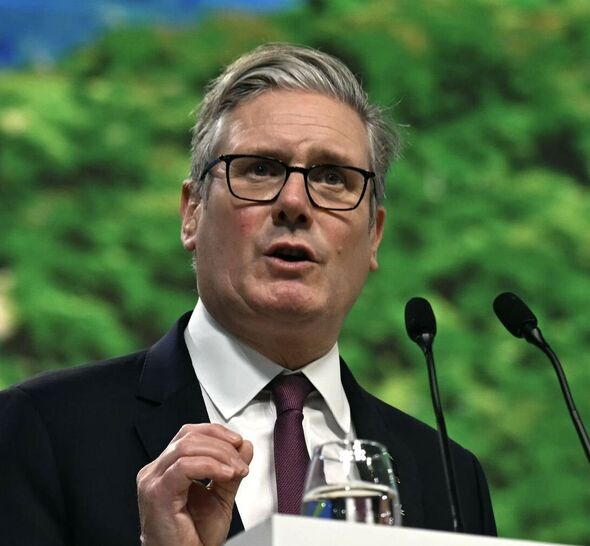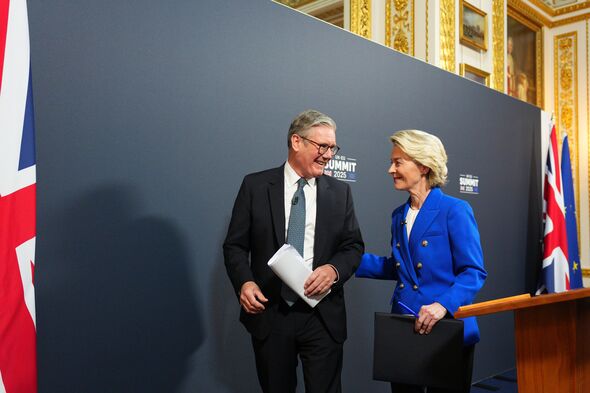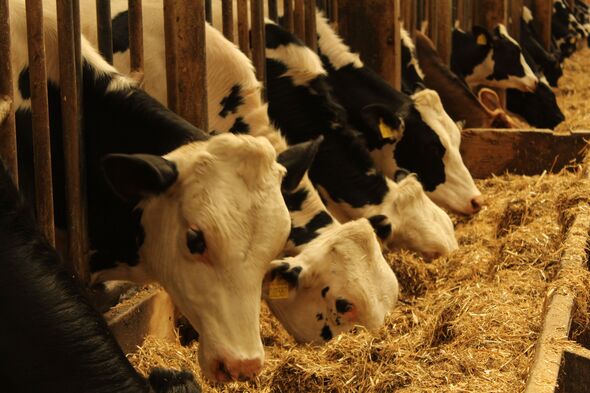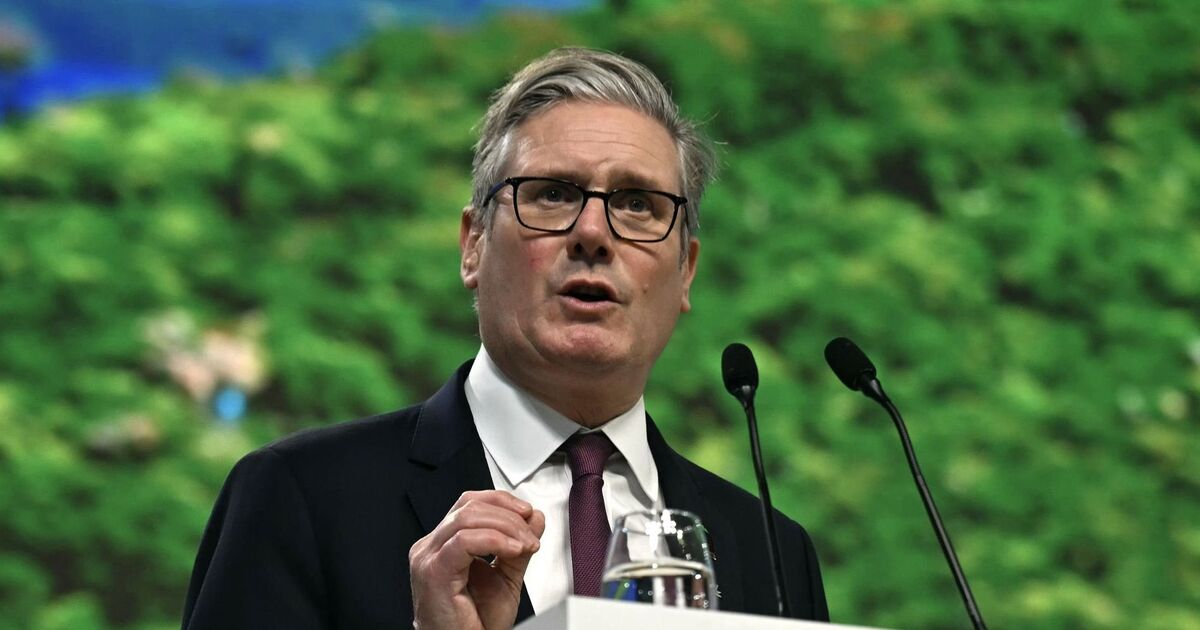
UK Prime Minister Sir Keir Starmer (Image: Getty)
Sir Keir Starmer’s “Brexit reset” has been dismissed as empty rhetoric by farming campaigner Liz Webster, who accused his Government of accelerating deregulation that threatens UK food standards and sovereignty. Ms Webster, founder of Save British Farming, described the reset as “mood music – just lift music,” designed to placate Labour’s pro-European majority while pursuing policies that align Britain more closely with lower-standard US trade norms.
Since entering office in July 2024, Prime Minister Sir Keir’s administration has used statutory instruments to roll back regulations on food safety and animal welfare, including changes to poultry handling which are now subject to a judicial review, Ms Webster pointed out. She told Express.co.uk: “He’s promising one thing and saying he’s doing this, but in reality, he’s doing the opposite, which is hitching us to America.
READ MORE: Keir Starmer humiliated by nightmare leadership poll in latest blow to PM
READ MORE: Nigel Farage in furious clash with Keir Starmer at PMQs
Stephen Wainwright on ‘devastating’ 12 months for UK farmers
“That means America first, and that’s the problem. America uses hormones, intensification – it would completely undercut us.”
Ms Webster, a cattle farmer from Gloucestershire, highlighted the much heralded veterinary agreements, which Sir Keir promoted as a key reset element, as illusory. She claimed EU negotiators see the overtures as “bad faith,” with unratified deals forced through via what she called “Henry VIII” powers that bypass parliamentary approval.
Ms Webster said: “It’s completely autocratic, a violation of our own parliamentary sovereignty.” Such an approach, she argued, risks trade wars and sanctions, as evidenced by recent steel tariffs from Brussels. She warned: “It will lead to a trade war with the EU.”
The campaigner portrayed Sir Keir’s strategy as actually being more confrontational than that of his predecessors. Ms Webster said: “He’s gone more aggressively into the Brexit wars than Rishi Sunak and Boris Johnson,” adding that in some respects “Sir Keir Starmer is like a slow-burn Liz Truss.”

Prime Minister Keir Starmer and European Commission President Ursula von der Leyen (Image: Getty)
Geography, she contended, undermined any pivot to the US: Britain, as a small nation on Europe’s edge, was reliant on continental energy and markets, not distant transatlantic ties.
Ms Webster stressed: “We’re not the Empire anymore. We don’t lead the world. We have to fall into line.”
She pointed to polls suggesting just 11% of Britons believing Brexit is working – a figure Ms Webster said Sir Keir is effectively serving, despite it likely representing Reform and Conservative voters rather than Labour’s base.
She further accused the Government of using what she termed “culture war distractions”, such as debates over inheritance tax and private school VAT, to obscure its deregulatory agenda. Ms Webster said: “It’s a culture war to make the left feel that Sir Keir is fighting for them, but it’s disingenuous.”

Cows grazing in a barn (Image: Getty)
Labour’s internal tensions were mounting, Ms Webster noted, with growing support for maverick figures like Zarah Sultana and defections to Reform.
Even former DUP leader Arlene Foster, appearing on the Newsnight on Wednesday, echoed concerns over agriculture’s erosion, especially in Northern Ireland, Wales, and Scotland, where economies hinge on farming post-Thatcher deindustrialisation.
Ms Webster called for a pro-EU realignment within Labour, including a sanitary and phytosanitary (SPS) agreement with Brussels to restore a level playing field and fund domestic production.
She said: “If we are to realign properly with the EU… the government has to face facts and actually put some money into British agriculture.”
The Netherlands demonstrated high-scale food output is feasible with government backing, she argued, urging a “workable food plan” that links production to environmental care.
Save British Farming’s blueprint, co-authored with former NFU economist Sean Rickard four years ago, emphasises investment in farms as “factories” for growth.
She continued: “Brexit always meant British farming was going to be the sacrificial lamb.”
Without change, rural economies, reliant on agronomists, seed suppliers, and subsidies – will collapse further, Ms Webster said.
She urged: “We need ground zero, back to basics. Ditch the American trade deal delusion.”
